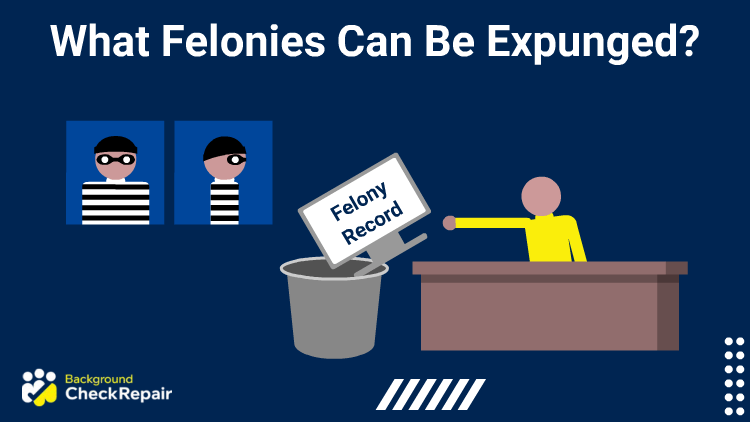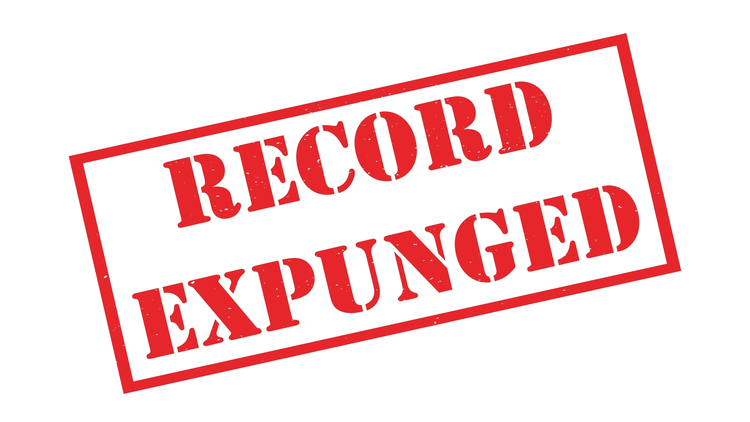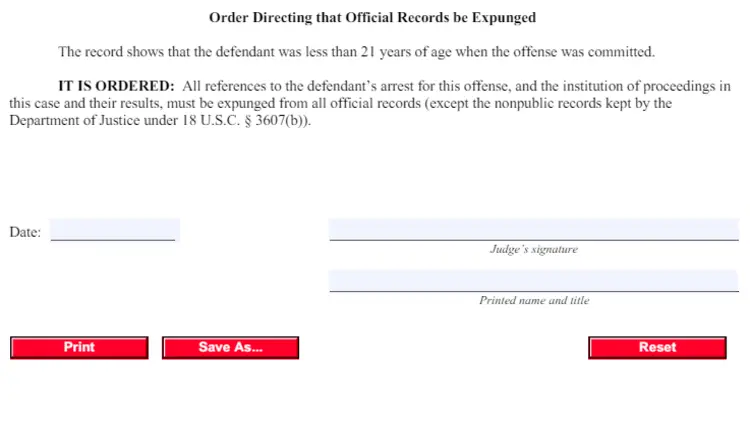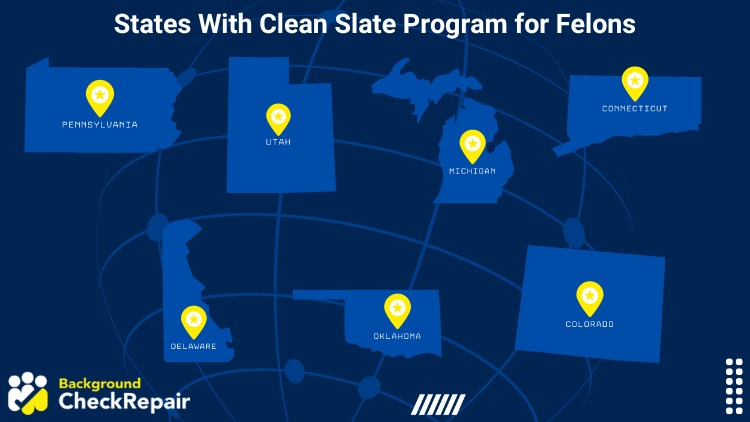
After serving time, clearing the record can be crucial for rebuilding your life, and many people wonder, what felonies can be expunged?
Although each state is different, the good news is that more and more states have updated their laws so that erasing felonies from the record (a.k.a. expungement) is easier than ever.
But, the type of crime, how much time has elapsed since the conviction, and even the age of the individual will all come into play when learning can a felony be expunged.
Many people wonder, do felonies get expunged after 7 years, or do felonies automatically go away at 18?
The answer to these questions, as well as how long can a felony charge remain pending, depends solely on the state where the crime was committed. So, the first thing to do is run a free criminal history check on yourself to find out if the felony is part of what appears on a background result, and then see how your state deals with expungement opportunities.
This guide explains how each state approaches what felonies can be expunged.
Can You Get a Felony Expunged?
Many people who have served their sentence wonder if a felony can be expunged at all and what felonies can be expunged.
The truth is that the possibility of getting a felony expunged will vary widely based on the state. Some states make it far easier than others to get felonies expunged, however even in states that have a clearer path to expungement than other states, the process is often extremely difficult.

The exact path to expungement, which crimes can be expunged, who is eligible for expungement, and how long after serving a sentence the individual has to wait before the expungement process are all completely different in each state.
However, it is important to keep in mind that expungement is not the only way to clean up your record to make it easier to find employment. The main issue for many individuals that have a felony conviction on their record is finding employment, as many employers these days run background checks and have to follow company policy that prevents them from hiring felons no matter the circumstances.
Expungement would obviously fix this problem as the record of their conviction would essentially be destroyed, leaving no trace of the charges and allowing them to pass a background check. However, another option that will have a similar effect is to have the record sealed. The process to get a record sealed is often similar to expungement but will often be easier to achieve.
Although expungement is the better option as the record is destroyed, a sealed record will be invisible to background check agencies, allowing individuals to still pass a background check.
The path to getting a record sealed is by no means easy, however, it is definitely worth looking into for individuals who are exploring all options to fix their background check.
How To Get Record Expunged
Besides the state laws, there are a few other factors that will determine the likelihood of getting a felony expunged. First is the crime that was committed. What crimes are allowed to be expunged will depend on the state, but in general the more serious the crime, the less likely it becomes to get that crime expunged.

(Image: US Courts2)
Every state has a lengthy list of crimes that do not qualify for expungement under any circumstances, this list usually includes the most serious felonies.
The less serious the crime, the more likely it is possible to get the record expunged or at least sealed. Many states will have clearly defined paths to expungements for certain misdemeanors, those who are first offenders, and individuals who were convicted of crimes as a minor.
There are two basic ways to get a record expunged: the do-it-yourself method, or hiring a lawyer to guide you through the process.
Do It Yourself Expungement
Even with more serious crimes, whether or not the crime can be expunged is not completely up to a judge. Each state lays out specific crimes and circumstances and how they can be expunged. Assuming this criterion is met, then a petition to have the record expunged must be completed and handed over to the court where the charges were filed.
Once this happens, each state has a different time frame for when the results of the expungement petition will be known, which is usually less than 3 months.
If all the criteria for expungement are met, there is still a strong possibility that the petition to expunge the records will be denied. Ultimately, a judge will make the final decision as to whether or not to expunge the record.
The expungement process itself is relatively simple. In most states, individuals who qualify for expungement are required to fill out a form to petition for expungement and submit that form to the courts within a certain time frame. As far as the legal process for expungement goes, that is essentially it. Although this will lead many to the conclusion that hiring an attorney to help get their record expunged is unnecessary, it is always a good idea to consult with a lawyer.
Expungement With a Lawyer
Expungement with a lawyer will follow the same basic process of filing an expungement petition, with the key difference that an experienced attorney will be able to carefully guide individuals through the process. This is invaluable, especially when it comes to preparing a case that is more likely to get a judge to look at the decision favorably.

Expungement without a lawyer is absolutely possible, many states have made the expungement process for certain crimes fairly easy. However, with more serious crimes and more complex situations, a lawyer will give individuals their best chance at getting a record expunged so that they can move on with their life.
Use the list below to learn more about the specific path to expungement in each state and familiarize yourself with the various expungement petition forms.
Clean Slate Program for Felons
Many individuals with the question “What felonies can be expunged?” may have heard about clean slate programs.
More and more states are trying to make it easier for reformed felons to find work and move on with their lives after serving a sentence. Besides things like limiting how far back a background check can go, many states have also adopted programs to help get records sealed or expunged, such as clean slate programs. This is a program that is being adopted by more and more states that allow for certain criminal records, such as arrests that do not result in a conviction or various civil infractions once enough time has passed, to be automatically sealed.
This program should not be confused with the expungement process that is available in many states. Only low-level crimes and infractions are part of the clean slate program, so more serious crimes will still need to go through the traditional expungement program.

Although useful, only 7 states have some kind of clean slate program currently:
- Pennsylvania
- Utah
- Michigan
- Connecticut
- Delaware
- Oklahoma
- Colorado
What Crimes Can Be Expunged?
The exact crimes that can be expunged in each state vary widely, and are changing by the year. As mentioned the general rule is that the more serious the crime is, the less likely that it is eligible for sealing or expungement. For example, homicide is not eligible for expungement in any state, but several states allow for drug-related felonies to be expunged if specific circumstances are met.
Expunging Non-Convictions
The process for expunging criminal activity from an individual’s record if they were never officially convicted of the crime is a different process than crimes that resulted in conviction. Although the process still requires individuals to petition to have the records expunged, many of the rules no longer apply. Individuals generally do not have to wait long to begin the process and virtually any arrest or charge that did not end in conviction should be eligible for expungement or the sealing of these records.
Expunging Misdemeanors
Although not always possible, the possibility of getting a misdemeanor conviction expunged is far greater than a felony. This is especially true for first-time offenders who may qualify for special programs that are not available to individuals who have been convicted of a crime before. Sometimes these programs will help to get the record expunged and in other cases it can help avoid conviction all together.
A newer development in recent years is states passing laws that allow for drug charges to be expunged more easily than other crimes. For example, the California Adult Use of Marijuana Act legalized the use of recreational marijuana in the state,1 however it also allowed individuals with felony marijuana convictions to have their conviction reduced to a misdemeanor and for misdemeanors marijuana offenders to have their crimes reduced to infractions as well as an easier path to expungement for many individuals.
Expunging Felonies
Getting a felony record sealed or expunged is by far the most difficult kind of record to make disappear. Individuals ask: what felonies can be expunged? asking the right questions.
Very few felonies have a clear path to expungement so identifying if your felony conviction is even eligible is the first and most important step.
No matter the circumstances or amount of time that has elapsed, certain felonies will remain on an individual’s record forever, unless state laws change or prevent background check agencies from checking back a certain length of time.
Before rushing into the expungement process, the amount of time that has elapsed since the crime will also play a factor. Even if the crime that was committed is eligible for expungement, many states force individuals to wait several months or years before they can even begin the expungement process. Most often this will be measured after the sentence has been completed in its entirety, including parole.
However, some states allow the waiting period to begin as soon as the sentence is given. Use the list below to learn about how long individuals have to wait to begin the expungement process as well as state laws regarding what crimes can be expunged and what circumstances must be met to do so.
Understand that most violent felonies will not qualify for expungement. However, it’s always best to check a state’s exact law.
Life after serving a felony sentence can be tough, especially when it comes to getting a job with a felony conviction on your record. Luckily, there is often a clear path to getting these harmful criminal records sealed or expunged. The first question that individuals need to answer for their state is what felonies can be expunged?
Frequently Asked Questions About What Felonies Can Be Expunged?






